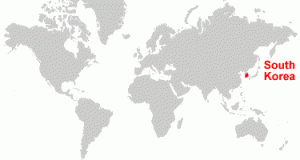Teaching is one of the most preferred careers in Korea with stable working hours, long vacations and a hefty government pension after retirement. Those factors play their part in making the line of work competitive. However, the profession has been predominantly occupied by women.
Nine out of 10 people that passed the elementary teacher certificate examination this year were female.
Out of 360 people that passed the teacher recruitment exam for Seoul public elementary schools, 320 (88.8 percent) were female, while male teachers only accounted for 40 (11.1 percent), according to the Seoul Metropolitan Office of Education.
Many experts say the lack of a male presence in schools could cause some problems in children’s education.
The absence is said to make it difficult for students to find a male role model in school, and has been pointed to as one of the main reasons for weakening discipline in classrooms.
In an effort to increase the number of male teachers, the Ministry of Education enforced measures to increase the male quota at education colleges in 2000. The ministry set a female student enrollment ceiling at 60 percent to 75 percent of the total number of freshman.
However, the government’s initiative had little success as women have a stronger preference for teaching careers, and scored relatively higher than their male counterparts in recruitment exams.
“Many competent male students tend to choose other career paths such as business to make more money,” said Jeong Jin-kewon, a junior supervisor at the Seoul education office. “Unless the government takes drastic measures that can appeal to men, such as reducing the mandatory military service, I don’t see a drastic rise in the numbers anytime soon.”
Some critics argue that the ministry should set a male teacher quota for recruitment exams as the number continues to shrink.
“Just like the government’s policy of regional allocation recruitment a similar policy should be implemented in teacher recruitment exams for men, to resolve the gender ratio among teachers,” said Korean Federation of Teachers Association spokesman Kim Jae-cheol.
However, female teachers argue that men should not get special treatment just to balance the ratio.
“We live in a democracy, whoever scores higher on the recruitment exams should become teachers, whether it be a man or woman,” said Chung a female high school teacher in Gyeonggi Province. “If the government steps in to regulate, more women will be affected and the policy will become reverse discrimination.”
“Out of the 12 classes only 3 male teachers are homeroom teachers. The limited number of male teachers are responsible for organizing chairs and other physical work, something needs to be done,” said a male middle school teacher.
Many parents believe their sons have a better connection with teachers that are male than female.
“My son had both female and male teachers, but he could relate and communicate better with his male teachers,” said Cho Hyeon-ju a mother of two. “I believe it’s important to have balance in schools.”
Many parents believe more male teachers are needed to tackle growing bullying. However, civic groups counter the argument saying a higher quality education is more important than the gender ratio.
For over a decade the number of male teachers has gradually dropped each year. Female teachers marked 63.5 percent nationwide in 2007, but that number jumped nearly six percentage points to 69.2 percent in 2017. Many experts say without successful government regulation the gender ratio could get even wider.

